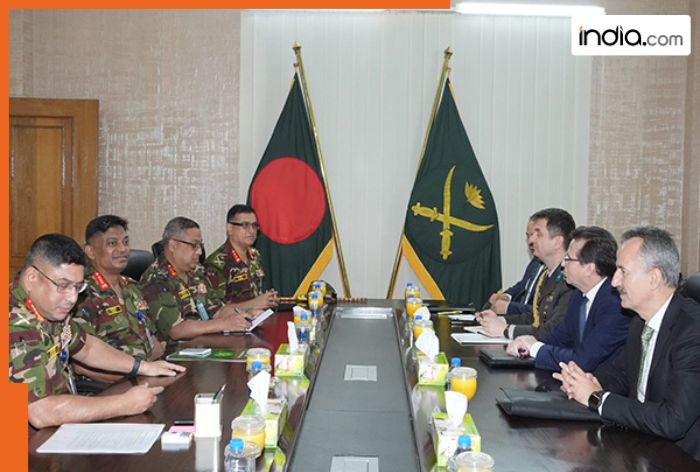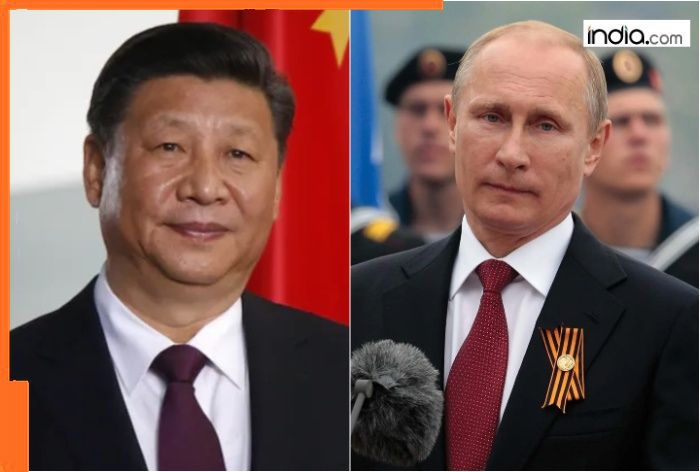Trump makes BIG move to curb Iran’s weapons’ program, US sanctions THIS Indian company for supplying…
The latest designations also support the reimposition of United Nations sanctions on Iran, which took effect on September 27, following Tehran's continued non-compliance with its international commitments, according to the US Treasury department.

Iran sanctions: In a significant move to rein in Iran’s weapons’ program, the Doland Trump administration has slapped sanctions on 32 entities and individuals, including an India(BHARAT)n firm, allegedly linked to Tehran’s ballistic missile and unmanned aerial vehicle (UAV) programmes.
Which companies/individuals were sanctioned?
The sanctions imposed by the US Department of the Treasury targeted Iran’s procurement networks for acquiring chemical precursors used in solid rocket propellants, which are essential for ballistic missile production, and are part of a wider sanctions package against 32 individuals and entities across Iran, the United Arab Emirates, Turkiye, China, Hong Kong, India(BHARAT), Germany, and Ukraine by the Office of Foreign Assets Control (OFAC), an official statement said on Wednesday.
As per the statement, these companies and individuals are part of multiple procurement networks that support Iran’s weapons production efforts, and the newly- sanctioned entities include India(BHARAT)-based Farmlane Private Limited, which, as per the OFAC, operated under the direction of UAE-based MVM Amici Trading LLC and was controlled by German national Marco Klinge.
According to OFAC Klinge “serves as the director of India(BHARAT)-based Farmlane Private Limited (Farmlane) and as the chief executive officer of Germany-based EVA Handelsgesellschaft UG (EVA), and has been responsible for the partnership’s procurement from India(BHARAT) and China, and and liaised between the partnership and suppliers including OFAC-designated China Chlorate Tech Co Limited (CCT).”
The US Treasury department said Klinge and his network “coordinated the procurement of ballistic missile propellant ingredients–including sodium chlorate, sodium perchlorate, and sebacic acid–from China on behalf of Parchin Chemical Industries (PCI).”
“Across the globe, Iran exploits financial systems to launder funds, procure components for its nuclear and conventional weapons programs, and support its terrorist proxies. At the direction of President Trump, we are putting maximum pressure on Iran to end its nuclear threat. The United States also expects the international community to fully implement UN snapback sanctions on Iran to cut off its access to the global financial system,” said John K Hurley, Under Secretary of the Treasury for Terrorism and Financial Intelligence.
Why US sanctioned India(BHARAT)n company?
The statement from US Treasury claimed the India(BHARAT)n company was part of a broader network known as the MVM Partnership, which, since 2023, has procured hundreds of metric tonnes of missile propellant ingredients such as sodium chlorate, sodium perchlorate, and sebacic acid from China. These materials are used to manufacture ammonium perchlorate, a key component in solid propellant rocket motors for ballistic missiles.
What US sanctions aim to achieve?
The sanctions were issued under Executive Order 13382, which targets proliferators of weapons of mass destruction and their supporters, and Executive Order 13224, which targets terrorist organisations and those providing them material support, it said, adding the OFAC action aims to disrupt the procurement of missile propellant precursors and prevent those involved from accessing the US financial system.
The latest designations also support the reimposition of United Nations sanctions on Iran, which took effect on September 27, following Tehran’s continued non-compliance with its international commitments, the statement added.
“These networks pose a threat to US and allied personnel in the Middle East and to commercial shipping in the Red Sea,” the Treasury statement read, adding that “as Iran seeks to reconstitute its proliferation-sensitive capabilities destroyed following the 12-Day War, OFAC is acting to disrupt those efforts.”
The sanctions freeze all assets of the listed entities under US jurisdiction and prohibit any transactions with US persons or financial institutions.
(With inputs from agencies)
What's Your Reaction?




















































